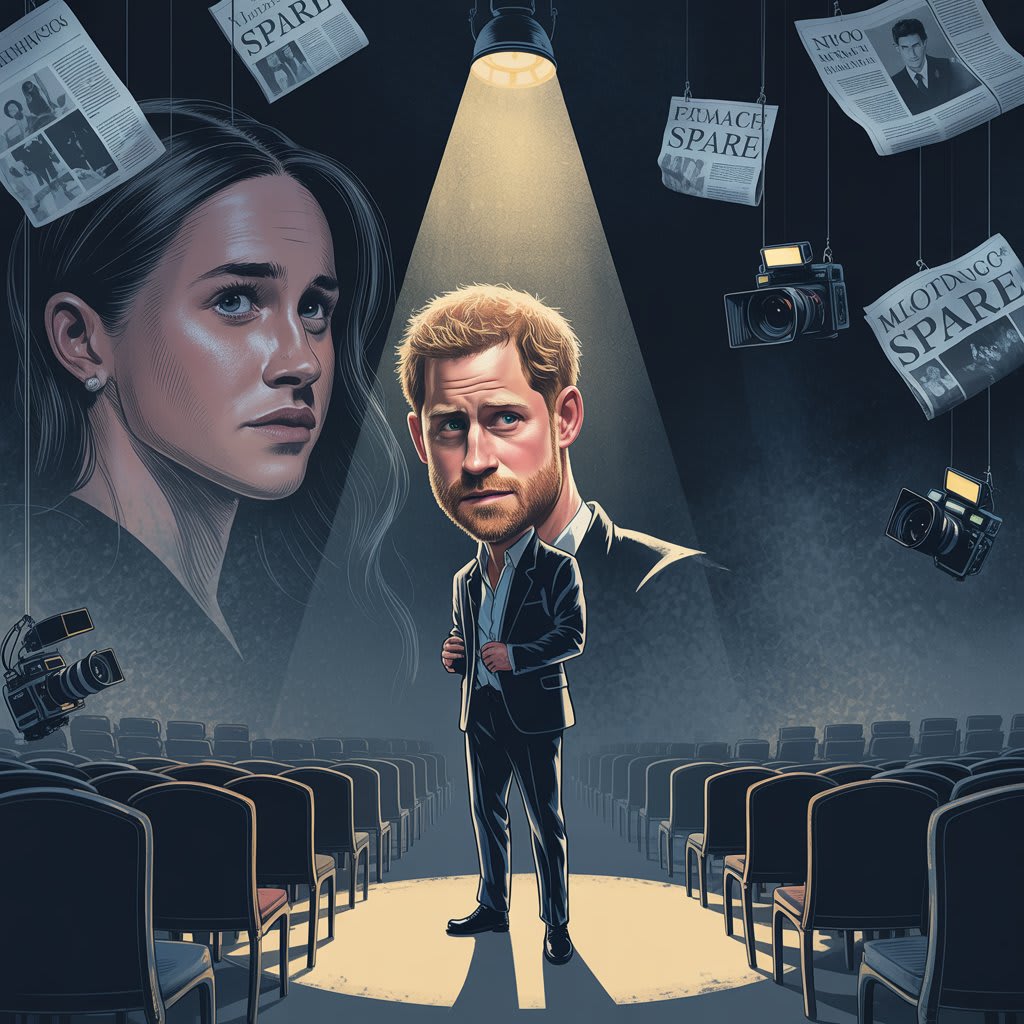There was a time when Prince Harry was one of the most beloved royals—a charming, rebellious figure who brought warmth to the stiff corridors of the British monarchy. But today, that narrative is falling apart. With each new interview, podcast, or press appearance, Prince Harry is not just misunderstood—he’s becoming a cautionary tale.
Many once saw him as the grief-stricken boy who walked behind his mother’s coffin. Now, he’s perceived as a man who’s weaponized his trauma for sympathy and profit. At the center of this shift is a simple question: Is Prince Harry truly seeking healing, or is he addicted to the spotlight?
The turning point came with the publication of his memoir, Spare. What was marketed as a vulnerable deep dive into royal life turned out to be a barrage of grievances that felt tone-deaf to many. Complaining about sharing a room in a castle with 50 rooms or being overshadowed by his older brother struck a nerve—not of sympathy, but frustration. These weren’t struggles most people could relate to. Instead of bridging the gap between royalty and reality, Harry exposed just how distant he really was.
Critics argue that the book reads more like a diary of entitlement than a path to reconciliation. It wasn’t just the tales of palace drama that grated; it was the way Harry framed every inconvenience as a tragedy, every slight as a betrayal. What was once interpreted as emotional honesty now feels like performative misery.
Commentators like Candace Owens haven’t held back. She openly calls Harry “a victim of his own stupidity”—not out of malice, but as a blunt diagnosis of what happens when unchecked privilege meets poor judgment. Owens doesn’t spare Meghan either. She views the Duchess as a calculated figure who expertly navigated the cultural moment, leveraging identity politics and public sentiment for personal gain.
But Owens makes it clear: Harry made these choices. He wasn’t manipulated. He wasn’t misled. He wasn’t a passive player. He co-wrote this saga, willingly stepping into the role of the misunderstood hero. He left the monarchy not in quiet rebellion, but with a Netflix deal, a Spotify contract, and a book tour.
What once seemed like a brave stand against outdated tradition now resembles an endless PR campaign. There’s a growing sense of fatigue among the public. Even in America—where Harry and Meghan initially found a sympathetic audience—the tide is turning. People are tired of the victim narrative, especially when it’s coming from someone who still holds immense wealth, security, and privilege.
Behind the media blitz lies something deeper: the unraveling of a man who doesn’t appear to know where he fits anymore. Is he a royal, or a critic of royalty? A family man, or a public provocateur? Every time he shares another grievance, he pushes away the possibility of peace with his family—and with the public.
Owens goes further, suggesting that Harry’s behavior bears hallmarks of emotional manipulation—perhaps not by Meghan alone, but by a dynamic where Harry is desperate to protect and prove himself. She even raises the chilling theory that Harry sees Meghan as a second chance to save his late mother, Princess Diana—a narrative that would explain his fierce loyalty, even in the face of public and familial collapse.
The tragedy is that Harry could have been the face of modern royalty. He had the charisma, the empathy, the story. He could have used his platform to advocate for mental health, social change, and bridging old institutions with new values. Instead, he chose to torch the bridge and then complain about the smoke.
More and more, Harry’s story feels like a missed opportunity. A royal tale that started with hope, dipped into heartbreak, and now risks ending in irrelevance. His approval ratings are plummeting, not because people lack compassion, but because they no longer believe he’s telling the whole truth—or any truth at all.
There’s a fine line between vulnerability and self-absorption, between storytelling and oversharing. Harry appears to have crossed it. He’s no longer viewed as the prince who broke free. He’s seen as the man who can’t stop talking, even as the audience quietly walks away.
And in this final act, the question remains: Will Prince Harry find peace in silence, or will he keep shouting until no one is left to listen?
